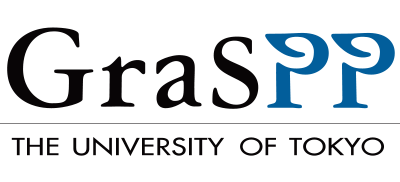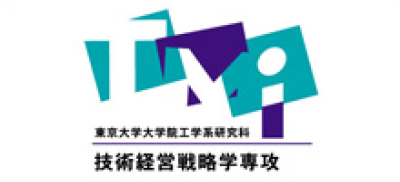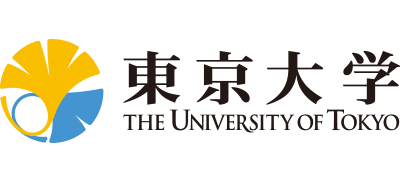[開催報告] On 9 March 2021, the Science, Technology and Innovation Governance (STIG) Program of The University of Tokyo held an international workshop titled “New Space in Asia: Implications of the Rise of the Chinese Commercial Space Sector in Asia and Beyond”. Co-hosted by the European Space Policy Institute (ESPI) at the occasion of the publication of public report titled “New Space in Asia – Experts views on space policy and business trends in Asian countries”, this workshop proposed a detailed overview of the mutations currently happening in the Asian commercial space sector, with a specific focus on the People’s Republic of China. After two keynotes on ‘New Space in Asia’ and ‘New Space in China’ by, respectively, Marco Aliberti of ESPI and Blaine Curcio of Orbital Gateway Consulting, Rajeswari Pillai Rajagopalan of the Observer Research Foundation and Kazuto Suzuki of the University of Tokyo provided the perspectives of Japan and India. Thank to the multifaceted expertise of the panelists, the workshop presented a complex overview of the rise of the Asian commercial space sector from both business and security perspectives.
当日の録画はこちらからご覧ください。
[開催概要] 近年、中国の宇宙産業は様々なステークホルダー(公共機関、国営企業、非宇宙産業、スタートアップ企業、投資家など)の複雑な関わり合いによって大きな変革を遂げている。宇宙技術の開発から利用まで、すべての分野にわたる100以上の宇宙ベンチャー企業が存在しており、民間投資制度が改正されたことによって多様な投資家が参入している。さらに地方政府も宇宙産業の競争力強化を後押ししているなど、商業宇宙分野の強大なエコシステムが生まれつつある。
今回、中国の宇宙産業についてヨーロッパ宇宙政策研究所(ESPI)が公開した最新レポートに基づき、東京大学科学技術イノベーション政策の科学(STIG)プログラムとESPIが共同でワークショップを開催する。始めにESPIのシニア・リサーチャーであるMarco Aliberti氏からレポートについての基調講演をいただく。次にOrbital Gateway Consulting社の創始者であり、中国の宇宙業界の世界的なアナリストであるBlaine Curcio氏より、近年の中国の宇宙産業の発展についてご講演いただく。さらにインドのObserver Research Foundationの研究員であるRajeswari Pillai Rajagopalan氏と本学公共政策大学院の鈴木一人教授が加わり、中国におけるニュー・スペースの高まりがアジアと世界へ与える影響についてパネル討論を行う。
開催日時:2021年 3月9日(火)17:30~19:00(日本時間)
開催方式:オンラインによる実施(Zoom ウェビナー)
–> 参加申込フォーム:ウェビナーのアクセス情報は、イベント実施前までに登録者へメール連絡します。
言 語:日英同時通訳(ウェビナーの言語切替機能を使用)
参加費:無料
主 催:東京大学科学技術イノベーション政策の科学(STIG)プログラム
共 催:ヨーロッパ宇宙政策研究所(ESPI: European Space Policy Institute)
—–プログラム—–
モデレーター: Dr Quentin Verspieren, Project Researcher, STIG Program, GraSPP, The University of Tokyo
開会挨拶:
Professor Hideaki Shiroyama, Director, STIG Program/Professor, GraSPP and Graduate Schools for Law and Politics, The University of Tokyo
基調講演 1: アジアにおけるニュー・スペース (15 min)
Marco Aliberti, Senior Research Fellow, ESPI
基調講演 2: 中国におけるニュー・スペース (15 min)
Blaine Curcio, Founder, Orbital Gateway Consulting
パネル討論: アジアと世界への影響 (45 min)
Dr Rajeswari Pillai Rajagopalan, Distinguished Fellow & Head, Nuclear & Space Policy Initiative, Observer Research Foundation
Blaine Curcio, Founder, Orbital Gateway Consulting
Professor Kazuto Suzuki, GraSPP, The University of Tokyo
Marco Aliberti, ESPI
閉会挨拶:
Professor Hideaki Shiroyama






登壇者の略歴
Marco Aliberti
Marco Aliberti works as Senior Research Fellow at the European Space Policy Institute (ESPI) in Vienna, Austria, where he has carried out and published a number of research projects in the areas of access to space and human spaceflight, governance and International Relations of space, and Asia’s space programmes, particularly those of China, Japan and India. He is also a member of the Space Power and Policy Applied Research Consortium (SPPARC) at Flinders University, Adelaide, Australia. Prior to joining ESPI in October 2012, he had positions consistent with his academic background in East Asian Studies. Mr Aliberti graduated in Oriental Languages and Cultures at the University of Rome “La Sapienza”, and obtained a MA in International Relations from the Italian Diplomatic Academy (SIOI) in Rome. He also completed a Master of Advanced Studies in Space Policy and Institutions with the Italian Space Agency and the National Research Council as well as Security Studies at the Institute of Global Studies – School of Government, also in Rome. He is the author of five books on space policy and politics, including the monograph “When China Goes to the Moon…”.
Blaine Curcio
Blaine Curcio is a consultant and analyst specializing in the space and aerospace industries, particularly in regard to China. Blaine is the Founder of Hong Kong-based Orbital Gateway Consulting, and is Affiliate Senior Consultant for Euroconsult. Blaine is a contributor to GoTaikonauts!, as well as the co-founder of the Dongfang Hour, a podcast focused on the Chinese space and aerospace industries. Blaine holds an MBA degree from the Hong Kong University of Science and Technology, and a BSc from Illinois State University.
Rajeswari (Raji) Pillai Rajagopalan
Dr. Rajeswari (Raji) Pillai Rajagopalan is a Distinguished Fellow and heads the Nuclear and Space Policy Initiative at the Observer Research Foundation. She is also a Non-Resident Indo-Pacific Fellow at the Perth USAsia Centre from April-December 2020. She was also the Technical Advisor to a new United Nations Group of Governmental Experts (GGE) on Prevention of Arms Race in Outer Space (PAROS) (July 2018-July 2019). As a senior Asia defence writer for The Diplomat, she writes a weekly column on Asian strategic issues. Dr. Rajagopalan joined ORF after a five-year stint at the National Security Council Secretariat (2003-2007), Government of India, where she was an Assistant Director. Prior to joining the NSCS, she was Research Officer at the Institute of Defence Studies and Analyses, New Delhi. She was also a Visiting Professor at the Graduate Institute of International Politics, National Chung Hsing University, Taiwan in 2012. She has authored or edited nine books including Global Nuclear Security: Moving Beyond the NSS (2018), Space Policy 2.0 (2017), Nuclear Security in India (2015), Clashing Titans: Military Strategy and Insecurity among Asian Great Powers (2012), The Dragon’s Fire: Chinese Military Strategy and Its Implications for Asia (2009). She has published research essays in edited volumes, and in peer reviewed journals such as India Review, Strategic Studies Quarterly, Air and Space Power Journal, International Journal of Nuclear Law and Strategic Analysis. She has also contributed essays to newspapers such as The Washington Post, The Wall Street Journal, Times of India, and The Economic Times. She has been invited to speak at international fora including the United Nations Disarmament Forum (New York), the UN Committee on the Peaceful Uses of Outer Space (COPUOS) (Vienna), Conference on Disarmament (Geneva), ASEAN Regional Forum (ARF) and the European Union.
Dr. Rajagopalan tweets @raji143 and maintains a personal blog: http://securitystrategyrajagopalan.blogspot.com/
Kazuto Suzuki
Kazuto Suzuki is Professor of Science and Technology Policy at the Graduate School of Public Policy at the University of Tokyo, Japan. He graduated Department of International Relations, Ritsumeikan University, and received Ph.D. from Sussex European Institute, University of Sussex, England. He has worked in the Fondation pour la recherche stratégique in Paris, France as assistant researcher and Associate Professor at the University of Tsukuba from 2000 to 2008 and served as Professor of International Politics at Hokkaido University until 2020. He also spent one year at School of Public and International Affairs at Princeton University from 2012 to 2013 as visiting researcher. He served as an expert in the Panel of Experts for Iranian Sanction Committee under the United Nations Security Council from 2013 to July 2015. He has been the President of Japan Association of International Security and Trade. His research focuses on the conjunction of science/technology and international relations; subjects including space policy, non-proliferation, export control and sanctions. His recent work includes Space and International Politics (2011, in Japanese, awarded Suntory Prize for Social Sciences and Humanities), Policy Logics and Institutions of European Space Collaboration (2003) and many others.
Hideaki Shiroyama
Hideaki Shiroyama is a professor of public administration at the Graduate School of Public Policy and the Graduate School for Law and Politics, The University of Tokyo. He studies about global governance/ international administration, science/ technology and public policy and policy process. He was the Dean of the Graduate School of Public Policy from 2014 to 2016 and the Director of Policy Alternatives Research Institute from 2010 to 2014. He was also a Visiting Scholar at MIT from 1997 to 1999 and Visiting Professor at Science Po from 2008 to 2009. He is currently working on interdisciplinary program as the Director of Science, Technology, Innovation and Governance Program and the Coordinator of Graduate Program for Social Design and Management. He also served as the Chairman of the Planning Committee of New Initiatives for Humanities and Social Sciences Program at the Japan Society for the Promotion of Science from 2003-2008, as President of the PI forum, an NPO for consensus building in Japan from 2006-2008 and as a member of various government advisory councils on higher education, nuclear safety, food safety, fire protection, scenarios for climate mitigation, industrial policy and space.
Quentin Verspieren
Quentin Verspieren is researcher at the Science, Technology, and Innovation Governance (STIG) program of the Graduate School of Public Policy, The University of Tokyo. He primarily works on space policymaking and technology development in developing countries, and on international regime-making for space safety and sustainability. Dr Verspieren has two master’s degrees in aerospace engineering (ISAE-SUPAERO and The University of Tokyo) and a Ph.D. in public policy (The University of Tokyo). He is also an associate research fellow at the European Space Policy Institute (ESPI) in Vienna, Austria, a fellow at the Japan Space Forum in Tokyo, Japan, and he holds consultancy positions with the Japanese government and Japanese space ventures.
—————————————————————-
問い合わせ先:
東京大学科学公共政策大学院
技術イノベーション政策の科学(STIG)プログラム
STIG@pp.u-tokyo.ac.jp



